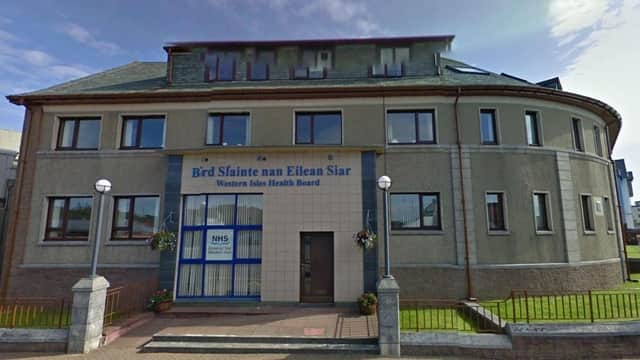Depopulation crisis forces health re-think


The report warns that a combination of staff shortages and financial pressures may force “the re-imagination of services and a new social contract to be discussed with the communities of the Western Isles”.
It states that using updated population projections, the islands are expecting to see a six per cent drop in population by 2028, one of the biggest decreases in Scotland. At the same time, the imbalance between working age islanders – particularly women – and more elderly age groups will continue to grow.
Advertisement
Hide AdAdvertisement
Hide AdThe report continues: “Working age population is set to decrease by six per cent by 2028 and in contrast the over 75s with the greatest levels of co-morbidity is set to rise by 25 per cent. The population changes will result in a year-on-year reduction in the available workforce to nurse, care and attend to the most vulnerable of people whose numbers are increasing year on year.
“The Integrated Joint Board is already feeling the effect of the changes in demography with high levels of vacancies in social care workforce and nursing workforce. In the last five months the net work force in post has reduced by over 30, predominantly in homecare and trained nursing posts”.
Population projections show that there is an anticipated decline by 20298 in each age group up to 60 with the sharpest fall of around 20 per cent of those in the 45-59 bracket.
The report continues: “This trend will continue and in just over 20 years time the Western Isles could be looking at a population of only 22,709. It is also worth noting that the Western Isles has the highest-equal female pensioner population at 27 per cent in comparison to 20 per cent in Scotland.
Advertisement
Hide AdAdvertisement
Hide Ad“This is against a backdrop of 94 per cent of frontline social care workers being female”.
On movement towards the merger of health and social care through an Integrated Joint Board, the report says that “there has been significant progress already in transforming services” while warning of substantial funding shortfalls.
It explains: “As well as delivering financial savings, we have been able to increase our effectiveness and efficiency, enabling services to manage the increasing demand and complexity of the patients and service users supported. The IJB is committed to transforming services, and this programme of work will continue moving forward.
“However, future gains will be smaller and this alone will not bridge the funding gap which has been identified. Over the medium term, we estimate a funding shortfall of £5m by 2024/2025”.
Advertisement
Hide AdAdvertisement
Hide AdAt Wednesday’s on-line meeting of the Health Board, the finance director Debbie Bozkurt, reported that savings made over the past few months have reduced its deficit for this year from £1.6 million to £287,000 with the prospect of achieving “break-even” by the end of the financial year.
She reported that this had been achieved partly by moving “some Integrated Joint Board reserves to the bottom line” and “a thorough analysis of vacancies”. She added that they had just received an unanticipated £400,000 invoice from another Health Board and added: “The biggest risk is unknown invoices from other boards”.
She warned however: “The Board is dependent on the ability of other Boards to continue providing services for NHS Western Isles’ patients”.